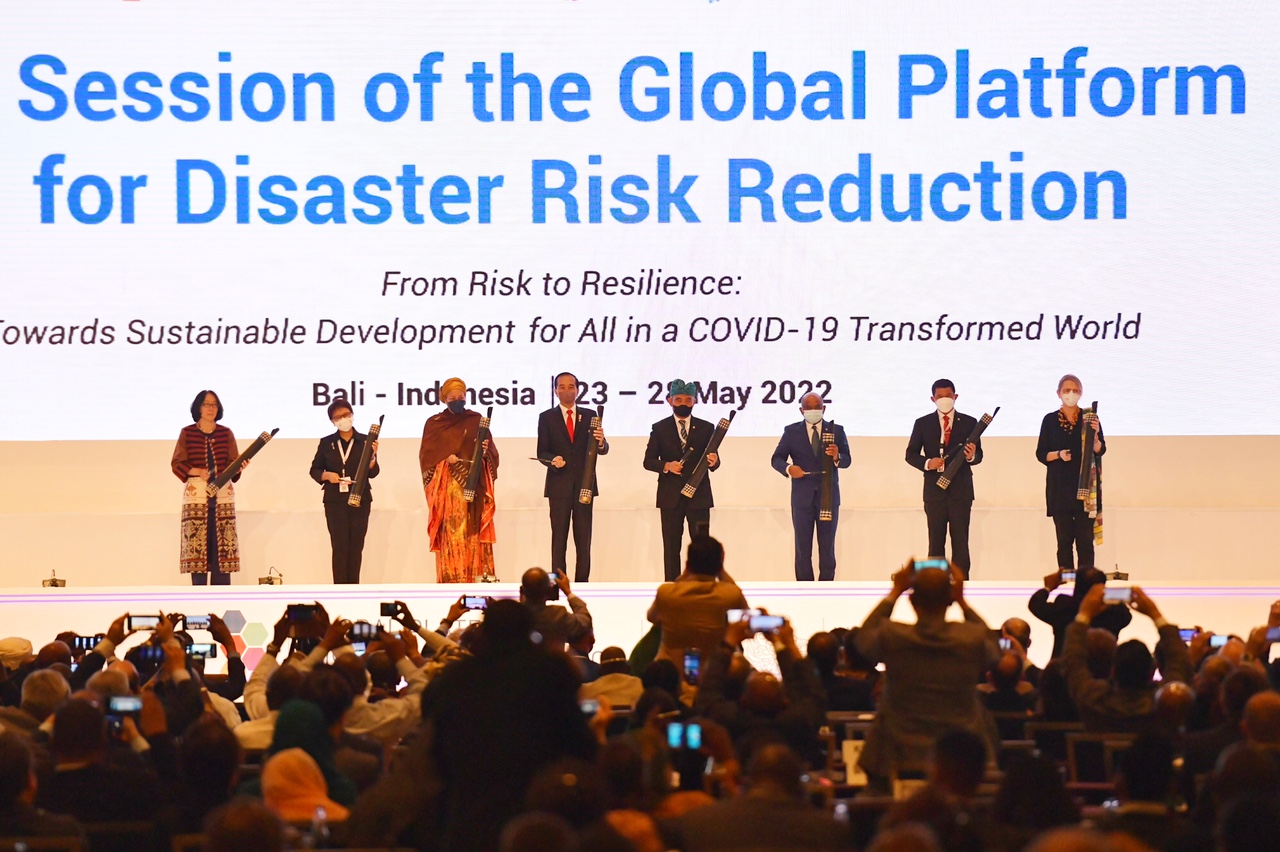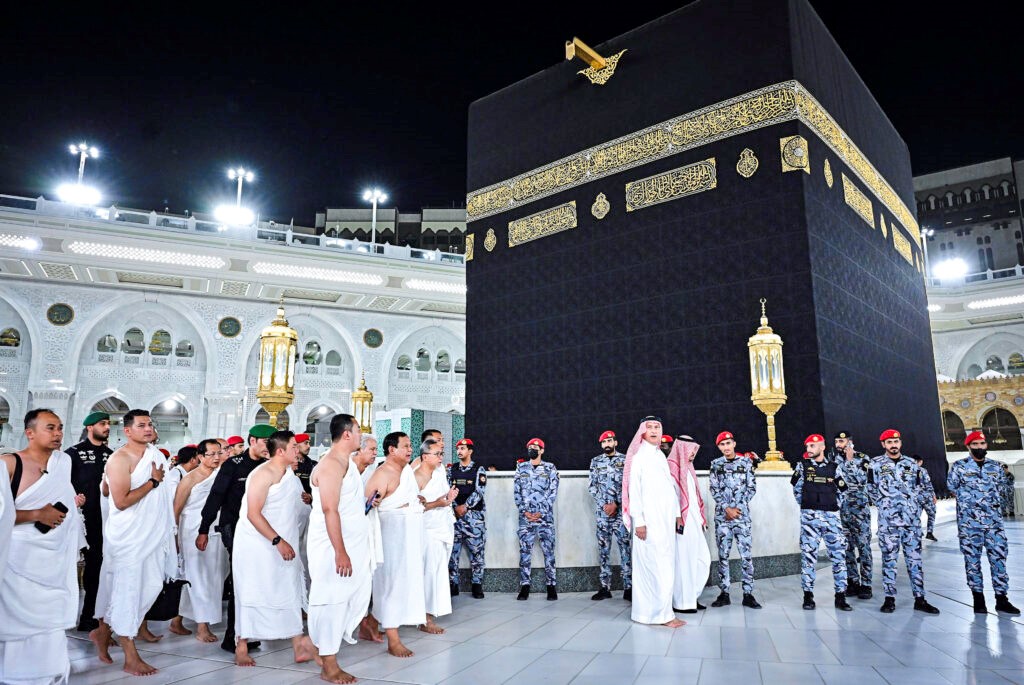President Jokowi Offers Four Concepts of Sustainable Disaster Resilience

President Jokowi officially inaugurated the 7th Global Platform for Disaster Risk Reduction (GPDRR) 2022. (Photo by: PR of Cabinet Secretariat/Rahmat)
President Joko “Jokowi” Widodo Wednesday (05/25) delivered four concepts of sustainable resilience in facing disaster risks that Indonesia offers to the world during the inauguration of the 7th Global Platform for Disaster Risk Reduction (GPDRR) 2022 held hybrid at Bali Nusa Dua Convention Center (BNDCC) in the resort island of Bali.
“At this Global Platform for Disaster Risk Reduction (GPDRR), the Indonesian Government offers to the world concepts of sustainable resilience to respond to challenges of systemic risks to face all kinds of disaster, including pandemics and to support the implementation of sustainable development at once,” he said.
First, the President emphasized the importance to strengthen a culture and institutions of disaster vigilance that are anticipative, responsive, and adaptive in facing disasters.
“Disaster preparedness education as well as government and social institutions that are synergic and responsive to disasters must be our shared priority,” he said.
Second, every country must invest in science, technology, and innovation, including in ensuring access to funding and technology transfer. According to the President, access to funding is an important issue that must be solved seriously.
“Indonesia formulated a funding strategy and disaster insurance by establishing a pooling fund and utilizing Village Fund for uses and development at village level to support measures of mitigation and preparedness,” he said.
The third concept is to build disaster-resilient and climate-resilient infrastructure. The President stressed that besides physical mitigation infrastructures such as dams, breakwaters, reservoirs, and embankments, green infrastructure such as mangrove forests, maritime pines at beaches, and vetivers to prevent landslides, and development of open green space must be a part of infrastructure development priority.
“We must pay serious attention to the protection of vulnerable groups living in high-risk areas,” he added.
Fourth, there must be a shared commitment to implement global agreements at national to local levels.
According to the President, Sendai Framework, Paris Agreement, and Sustainable Development Goals (SDGs) are vital international agreements for disaster risk and climate change reduction measures.
“I invite every country to commit and make every effort to implement them,” he said, adding that in this international forum, Indonesia is ready to share experience and knowledge in mitigating disasters and use best practices of disaster mitigation from other countries.
“As a disaster-prone country, Indonesia has accumulation of knowledge and experience that can be an important lesson for the world, but Indonesia also wishes, really wishes to learn from international experiences. Let’s work together to mitigate the risk of disaster for a better life today and tomorrow,” he remarked. (FID/UN) (DH/LW)








